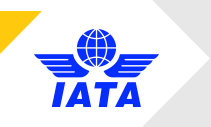Passenger traffic across the Middle East is expected to soar to 530 million by 2043, effectively doubling from current figures, according to the International Air Transport Association (IATA). The 20-year forecast anticipates an average annual growth rate of 3.9% in passenger numbers from 2023 to 2043, slightly surpassing the global average of 3.8%. Also, the region is set to achieve the highest net profit per passenger globally, expected to post a net profit of $6.2 billion, representing an 8.7% profit margin, well above the global average, driven by strong economic performance and demand for both business and leisure travel. As per the IATA Passenger reports, “Middle Eastern airlines saw a 14.2 per cent year-on-year increase in demand. Capacity increased 9.9 per cent year-on-year, and the load factor increased by +3.0 percentage points to 79.3 per cent compared to April 2023.” With hubs like Dubai, Doha, and Riyadh leading the charge, the focus must now shift to ensuring all parts of the region are equipped to benefit from the coming wave of air traffic and infrastructure development.
Read More »IATA and Star Alliance to improve passenger experience
The International Air Transport Association (IATA) and Star Alliance have renewed their collaboration on traveller document verification to improve the passenger experience. Star Alliance and IATA, in a signing ceremony at IATA’s 75th Annual General Meeting in Seoul, agreed that IATA’s Timatic AutoCheck solution will continue to power Automated Document Check (ADC) for Star Alliance member carriers. IATA Timatic AutoCheck enables Star Alliance customers checking-in at the airport counter or online to verify that their travel documents are valid and complete for the whole journey, including any transit point before travel begins. This delivers several significant benefits; preventing the embarrassing and distressing situation for passengers of being denied entry to a country on arrival owing to missing or invalid documents; and enabling a seamless experience when travel encompasses multiple carriers. Passengers will no longer need to see an agent to have their travel documents checked and rechecked at transit points, and avoiding the passenger fine to airlines for transporting inadmissible passengers. Jeffrey Goh, CEO Star Alliance said, “This marks another milestone in our continuing strategy to improve the passenger travel experience, especially for those customers who fly on multi-carrier journeys. Our partnership with IATA to extend collaboration on passenger document verification through use of IATA’s Timatic AutoCheck to support our proven solution of the ADC will help ensure a seamless travel experience for our members’ 775 million passengers, a priority that lies at the heart of our strategic repositioning.” “Digital transformation is essential to meeting evolving passenger expectations today and into the future. Star’s selection of Timatic will give its customers a better experience,” said Alexandre de Juniac, IATA’s Director General and CEO.
Read More »Middle East carriers’ passenger demand fell 3 per cent in March: IATA
The International Air Transport Association (IATA) announced the global passenger traffic results for March 2019 showing that Middle East carriers’ passenger demand fell 3 per cent in March marking a second consecutive month of declining traffic. This reflects the broader structural changes in the industry which have been taking place in the region. Capacity increased 2.3 per cent, and load factor plunged 4.0 percentage points to 73.8 per cent. According to IATA, the overall global passenger traffic results for March 2019 showing that demand (measured in revenue passenger kilometers, or RPKs) rose 3.1 per cent, compared to the same month a year ago, which was the slowest pace for any month in nine years. “While traffic growth slowed considerably in March, we do not see the month as a bellwether for the rest of 2019. Nevertheless, the economic backdrop has become somewhat less favourable, with the IMF having recently revised its GDP outlook downward for a fourth time in the past year,” said Alexandre de Juniac, Director General and CEO of IATA.
Read More » Tourism Breaking News
Tourism Breaking News

